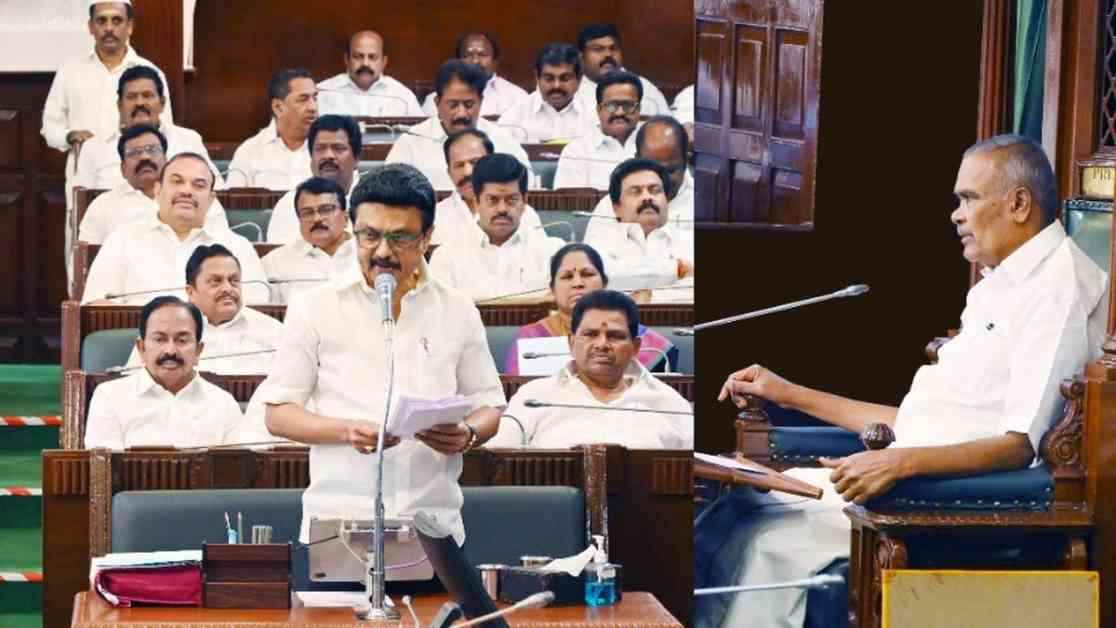Tamil Nadu Chief Minister M.K. Stalin made a significant announcement in the Legislative Assembly on Tuesday, April 15, 2025. He unveiled plans to establish a three-member high-level committee tasked with assessing the Constitution, laws, and policies governing Centre-State relations. The committee aims to propose measures to bolster the autonomy and federalism of states. This move underscores the Chief Minister’s commitment to upholding the rights of Tamil Nadu amidst evolving political, social, and economic landscapes.
Committee Formation and Mandate
The high-level committee, led by former Supreme Court judge Justice Kurian Joseph, comprises retired IAS officer K. Ashok Vardhan Shetty and former vice-chairman of the State Planning Commission M. Naganathan as members. Its mandate spans a comprehensive review of Constitutional provisions, laws, rules, and policies related to Centre-State relations. The committee is tasked with recommending strategies to reintegrate subjects delegated from the State List to the Concurrent List, address administrative hurdles faced by states, and propose reforms to enhance state autonomy while upholding national unity and integrity.
Chief Minister Stalin’s emphasis on state autonomy stems from a deep-rooted historical context. He highlighted Tamil Nadu’s longstanding advocacy for increased autonomy, dating back to the formation of a high-level committee chaired by Justice P.V. Rajamannar in 1969. Despite subsequent commissions like the Sarkaria Commission and the Punchhi Commission, little progress has been made in addressing state concerns. The Chief Minister’s call for autonomy resonates with Tamil Nadu’s enduring legacy of championing state rights in the face of centralization.
Challenges to Autonomy: NEET and Education Policy
Chief Minister Stalin’s address also touched on pressing issues such as the imposition of the National Eligibility-cum-Entrance Test (NEET) for medical admissions. He criticized the central government’s move as detrimental to the inclusive educational policies of Tamil Nadu, disadvantaging marginalized and economically weaker students. The Chief Minister’s plea for exemption from NEET underscores the state’s commitment to nurturing talent and ensuring equitable access to education, particularly in the medical field.
Furthermore, the Chief Minister raised concerns over the National Education Policy’s three-language policy, which he perceived as a subtle imposition of Hindi on Tamil Nadu students. The withholding of funds under the Samagra Shiksha Abhiyan reflects a broader narrative of central overreach, threatening the linguistic and cultural fabric of states. Chief Minister Stalin’s advocacy for educational autonomy underscores the importance of preserving linguistic diversity and cultural identity within the educational framework.
Financial autonomy emerged as another critical point of contention, with Tamil Nadu receiving disproportionately low tax devolution despite being a significant contributor to the Union’s revenue. The implementation of the Goods and Services Tax (GST) further exacerbated revenue disparities, highlighting the need to recalibrate fiscal mechanisms to ensure equitable resource distribution among states. Chief Minister Stalin’s call for fair tax devolution encapsulates Tamil Nadu’s quest for financial equity within the federal framework.
In conclusion, Chief Minister Stalin’s initiative to fortify state autonomy resonates with the broader ethos of cooperative federalism enshrined in the Indian Constitution. By championing the rights of states and advocating for a more balanced Centre-State relationship, Tamil Nadu seeks to reaffirm its autonomy while upholding the collective spirit of the nation. As the state navigates complex political terrains and evolving policy landscapes, the quest for autonomy stands as a testament to Tamil Nadu’s enduring commitment to federal principles and state sovereignty.














